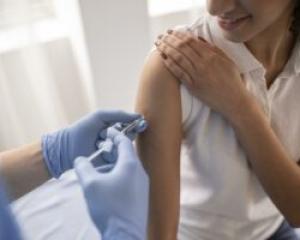-
Patient Resources
-
-
Services
-
-
Service Details
-
Proudly Part of Privia Health
News & Announcements

Hotflashes - March 2025
Mar 30
There can be a lot of fad diets and conflicting information about different food groups on the internet, especially with influencers on TikTok and Instagram. It can be hard to tell what is true and what isn’t, so this article will give you a helpful guide on how to build a nutrition plan that will work for you.

Hotflashes - Feb 2025
Jan 29
Most of us know that exercise is important for a healthy heart, but it can be hard to fit it in our busy schedules and sometimes the information on what type of exercise is best can be a little overwhelming. In today’s article, we’ll go over some effective ways to work in aerobic exercise, which is the best type of exercise for the heart.

Hotflashes | January 2025
Jan 15
Each year, around 11,500 women in the United States are diagnosed with cervical cancer and about 4,000 women die from the disease in the U.S. each year. In today’s article, we’ll discuss the common signs and symptoms of cervical cancer to look out for and what to do if you notice them.

HOTFLASHES | December 2023
Dec 01
While you may have heard you need to drink eight glasses of water each day, the amount of water you need is a little more complicated than that. Recommendations have changed over the years, and your individual needs are likely affected by your health, level of activity, and where you live.

HOTFLASHES | September 2023
Sep 01
About one in every six children are considered obese, and this number keeps growing. The rate of childhood obesity has tripled over the past three decades in the United States. While these numbers are certainly concerning, this article outlines important steps you can take to prevent childhood obesity.

HOTFLASHES | October 2023
Oct 01
How does menopause affect breast cancer risk?
During National Breast Cancer Awareness Month, we wanted to talk about the connection between menopause and breas

HOTFLASHES | November 2023
Nov 01
Do I need pelvic floor surgery?
While many women may be uncomfortable handling medical issues “down there,” you shouldn’t suffer needlessly through serio

HOTFLASHES | August 2023
Aug 01
What is osteoporosis?
Osteoporosis is a bone disease that affects about 54 million Americans, and older women are at a higher risk. In this article we’ll go o

HOTFLASHES | January 2024
Jan 01
What the HPV Vaccine is and Why Your Child Needs It
If you have a pre-teen or teenager, you’ve likely been asked about the HPV vaccine for your child.

HOTFLASHES | February 2024
Feb 01
Top Five Steps for Heart Health
During the month of February, we see lots of content about heart health and statistics about heart disease and heart attacks. W
